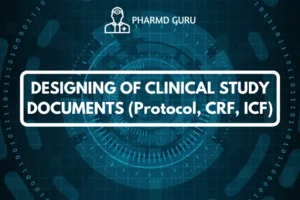INFORMED CONSENT PROCESS: In clinical research, the informed consent process plays a vital role in upholding ethical standards and protecting the rights and welfare of participants. It ensures that individuals have a comprehensive understanding of the study’s purpose, procedures, potential risks, and benefits before deciding to participate. This article explores the informed consent process, including its definition, steps for conducting it, and special considerations in specific populations and circumstances.
SCROLL DOWN TO THE BOTTOM OF THE PAGE FOR ACTUAL NOTES
Definition of the Informed Consent Process:
The informed consent process is a communication process between researchers and prospective participants that aims to provide relevant information about a study. It allows individuals to make voluntary, informed decisions regarding their participation. Informed consent is based on the principles of autonomy, respect for individuals, and ethical research conduct.
Introduction to the Informed Consent Process:
The informed consent process begins with an introduction to the study, wherein researchers provide a clear and concise overview of the research project. This introduction should include the study’s objectives, procedures, duration, potential risks, benefits, confidentiality measures, and the participant’s right to withdraw at any time without consequence.
Steps for Conducting the Informed Consent Process:
The informed consent process typically involves the following steps:
- Discussion: Researchers engage in a detailed discussion with prospective participants, explaining the study in simple, understandable language. They provide ample opportunity for participants to ask questions and seek clarification.
- Provision of Information: Researchers provide written materials, such as an informed consent form (ICF), which includes all the necessary information about the study. The ICF should be written in a clear and accessible manner, tailored to the participants’ language and comprehension level.
- Participant Comprehension: Researchers assess participants’ comprehension of the provided information by asking questions, encouraging dialogue, and addressing any concerns raised. It is essential to ensure that participants have understood the study’s purpose, procedures, risks, benefits, and any alternative options available.
- Voluntary Participation: Participants are given sufficient time to consider their involvement in the study. Researchers emphasize that participation is entirely voluntary and that individuals have the right to refuse or withdraw from the study without any repercussions.
- Documentation: Once participants express their willingness to participate, they are asked to sign the informed consent form as a symbol of their informed decision. This process ensures that participants have acknowledged their understanding of the study and their agreement to participate.
Steps in Obtaining Informed Consent:
Obtaining informed consent involves the following key steps:
- Clear Communication: Researchers ensure effective communication by using plain language and avoiding technical jargon. They explain complex concepts in a simplified manner to enhance participants’ understanding.
- Capacity Assessment: Researchers assess the participants’ capacity to provide informed consent. This assessment involves evaluating their ability to comprehend the information, appreciate its significance, consider the consequences, and make a voluntary decision. In situations where participants lack capacity, additional measures are taken to protect their rights.
- Ethical Considerations: Researchers ensure that participants’ decision-making capacity is not compromised by undue influence, coercion, or conflicts of interest. They maintain a neutral and supportive environment throughout the consent process.
Special Considerations in Informed Consent:
In certain populations and circumstances, additional considerations apply:
- Informed Consent in Children: When involving children in research, informed consent is obtained from their legally authorized representative(s) or guardian(s). The process includes providing age-appropriate information to the child, assenting when applicable, and obtaining informed consent from the responsible adult(s).
- Informed Consent in Incompetent Individuals: For individuals who are deemed legally incompetent to provide consent, alternate procedures are followed. In such cases, a legally authorized representative or surrogate decision-maker provides informed consent on the individual’s behalf, ensuring the best interest of the participant.
- Informed Consent in Emergency Situations: In emergency situations where immediate intervention is necessary to safeguard a participant’s life, the consent process may be waived or deferred. In such cases, ethical considerations and legal provisions allow for temporary emergency measures while subsequent informed consent is sought at the earliest opportunity.
The informed consent process is a cornerstone of ethical clinical research. It promotes participant autonomy, ensures transparency, and safeguards the rights and welfare of individuals involved. Researchers, ethics committees, and regulatory authorities diligently uphold the principles and procedures of the informed consent process to foster responsible and ethical research conduct.
ACTUAL NOTES




